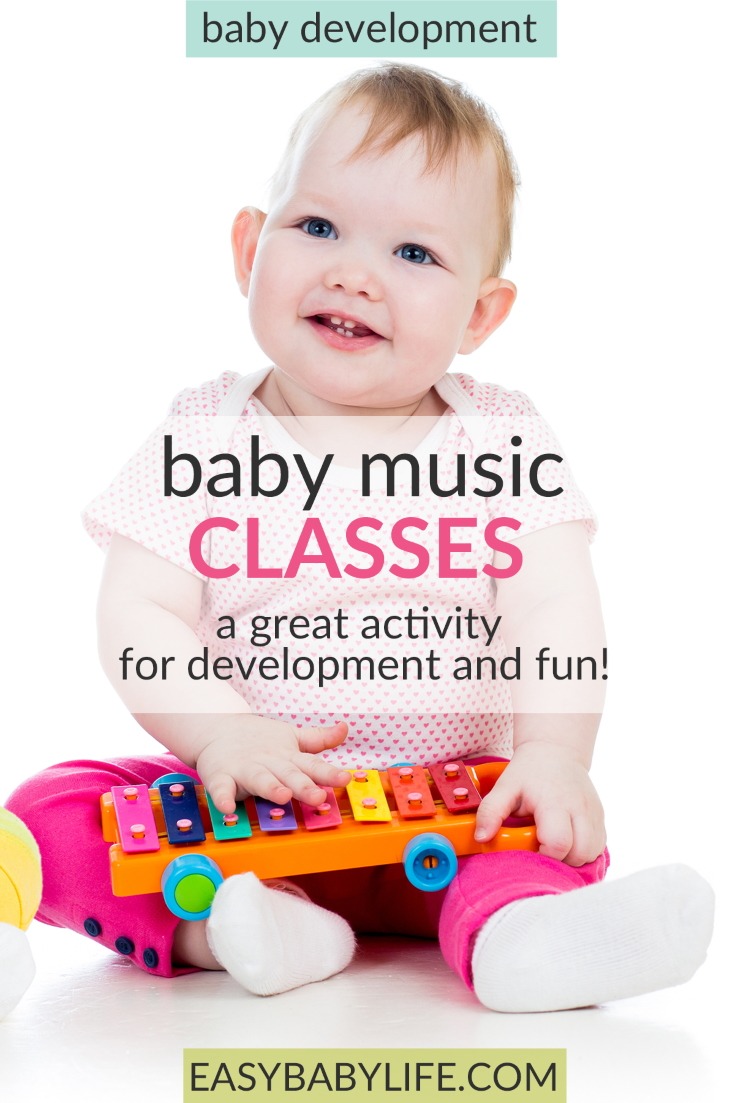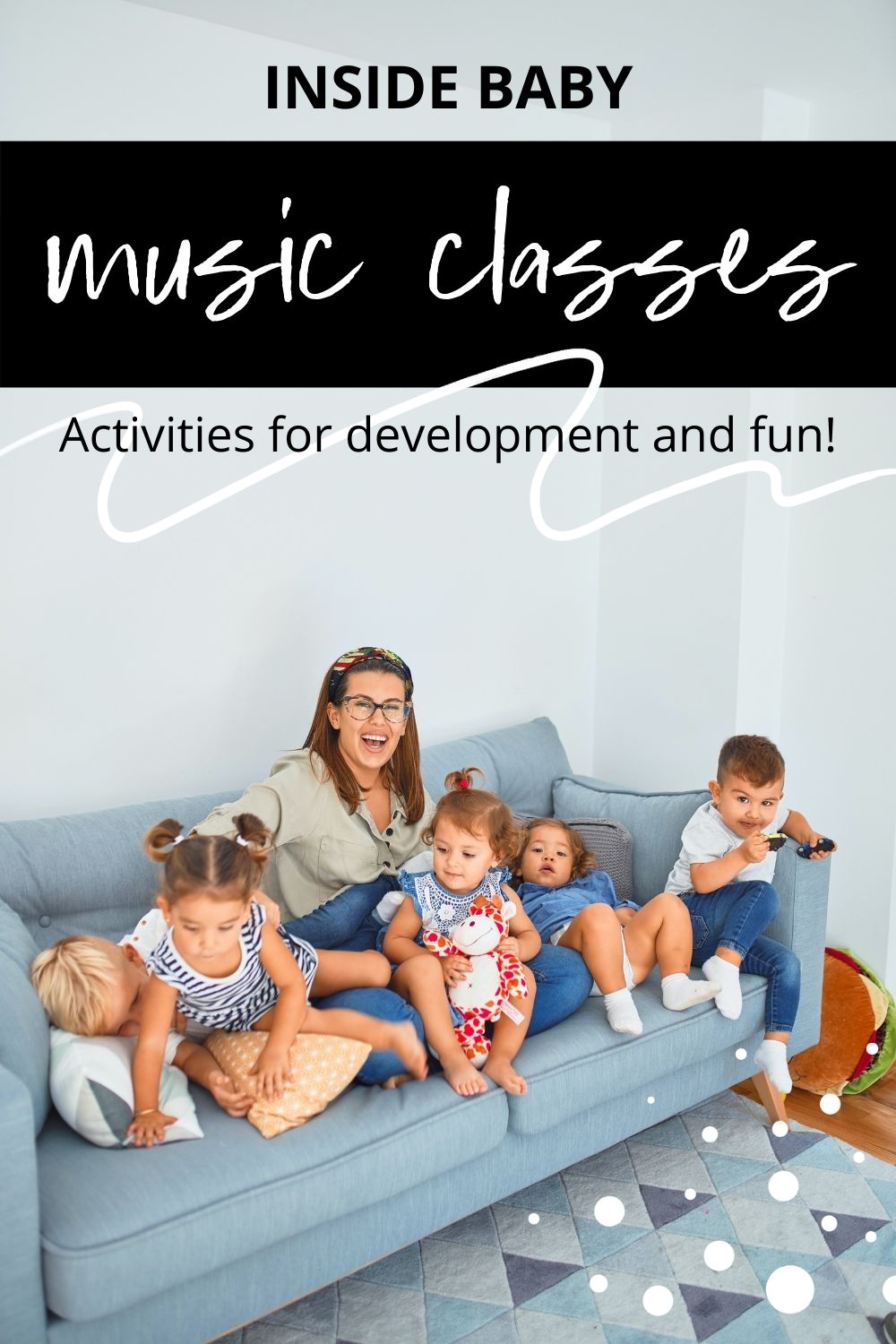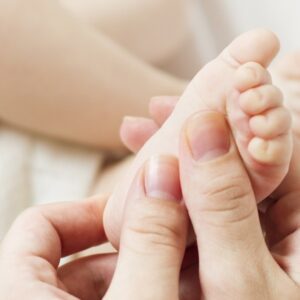Babies love music! If you want something fun to do with your baby, try baby music classes. A wonderful way to interact and stimulate your baby’s development.

Baby music classes… Not only are they FUN; several studies have found positive effects on babies’ development from listening to music.
Of course, you don’t have to attend a class to expose your baby to music, but it is a great baby activity once your baby is old enough to be less content with just staying at home, probably at around the age of 4 months.
Some of the possible benefits of exposing your baby to a lot of music are:
- Positive developmental effects on premature babies
- Improvements in colic-related crying spells
- The building of music-related pathways in the brain that are similar to those for reasoning, so we can actually improve our baby’s spatial thinking by attending music classes.
Not bad for such a fun baby activity! You can find even more good reasons to play music for your child here at KiddyCharts.com.
I enrolled in a baby music class with my son when he was around 4 months old. All babies were more or less of the same age, and we continued together until they were all around 18 months. It was a great experience. The sessions went from half of the crowd sleeping or breastfeeding to a small gang of crawling, walking, “singing” young toddlers.
I still sing some of the songs for my son. They are a very special memory!
Here are a few tips to make your baby’s music classes a fun adventure.
Successful (i.e., FUN) Baby Music Classes
- With babies of similar age
- The time of the day
- Full, dry (and alert)
- Sleeping through
- And repeat…
- Baby in charge
- Remember the camera
- Stick to the routines
With babies of similar age
Go with babies of similar age. That is a lot more fun and you will see them develop together! And as a bonus, you can discuss, baby sleeping, feeding, or whatever questions with other parents in the same situation.
The time of the day
Pick the perfect time of the day, if possible. Many babies tend to stay with the 2-3-4 nap schedule for quite some time, so visiting a music baby class after the first morning-nap, but before lunch will be a great time for many babies. After lunch is probably the worst time since most babies tend to keep the mid-day nap for a long time.
Full, dry (and alert)
Make sure your baby has a new diaper and is fed before going to class. Making sure he is alert is of course more of a challenge, but again, picking a suitable time of the day will increase the probability of having an awake and happy baby during the music class.
Sleeping through
If your baby sleeps, let him. This might be easier said than done if you paid hard-earned money to attend the class. But trust me, your baby will be more awake over time, and a tired, moody baby will not have or be much fun anyway! Go to the class and bring your baby along anyway. Hopefully, he or she will wake up during the singing.
And repeat…
Sing the songs in between. Babies have great hearing, but a not that great memory. If you sing a few of the songs daily, your baby will recognize them in class and will enjoy them even more.
Baby in charge
This is your baby’s time to be in charge. As your baby grows older, he or she will inevitably start moving around. This is when the fun really begins! You are likely to see a lot rhythm in your little one, but also a complete lack of interest from time to time in doing the correct movements or sounds.
Don’t do anything to force your baby to interact! The baby music classes are meant to be a fun event for your baby.
Remember the camera
I have a few wonderful pictures of my son clapping hands and having fun at the baby music class. As well as a few of him simply lying on his back listening when he was really young. Great memories! These days we all carry around our cameras in our smartphones. But we still need to remember to use them..!
Stick to the routines
Bring lunch or sleeping possibilities for your baby. Depending on what time of the day you attend the class, make sure you can keep your baby’s usual schedule as much as possible. If it is lunchtime after the class, bring his lunch (unless you breastfeed and always bring it..). If it is nap time, consider taking a long stroller walk, to give him or her the opportunity of a great nap while you get some exercise.
In any case, try to maintain your usual routines as much as possible, since babies really are routine-lovers.
That was it! No rocket science for sure! If you have attended baby music classes or you are thinking about it, please share your thoughts and experiences below! :-)
More Baby Activities
- Newborn Activities Tips
- Baby Massage
- Baby Swimming Lessons
- Baby Sign Language
- To The Playground With A Baby
- Mom And Baby Exercise
- Fun Toddler Craft Ideas
References
Larson, K., Ayllon, T. (1990). The effects of contingent music and differential reinforcement on infantile colic, Behaviour Research and Therapy, Volume 28, Issue 2, Pages 119-125
Gooding, L. (2010). Using music therapy protocols in the treatment of premature term infants: An introduction to current practices. The Arts in Psychotherapy, Volume 37, Issue 3, Pages 211-214
Fagen, J., Prigot, J., Carroll, M., Pioli, L., Stein, A., and Franco, A. (1997). Auditory context and memory retrieval in young infants. Child Development, 68, 1057-1066.
Rauscher, F. H., Shaw, G. L., Levine, L. J., Wright, E. L., Dennis, W. R., and Newcomb, R. L. (1997). Music training causes long-term enhancement of preschool children’s spatial-temporal reasoning. Neurological Research, 19, 2-8.
Viadero, D. (1998). Music on the Mind. Education Week, April 8, 1998.
Wallace, W. T. (1994). Memory for music: Effect of melody on recall of text. Journal of Experimental Psychology: Learning, Memory, and Cognition, 20, 1471-1485.

Paula Dennholt founded Easy Baby Life in 2006 and has been a passionate parenting and pregnancy writer since then. Her parenting approach and writing are based on studies in cognitive-behavioral models and therapy for children and her experience as a mother and stepmother. Life as a parent has convinced her of how crucial it is to put relationships before rules. She strongly believes in positive parenting and a science-based approach.
Paula cooperates with a team of pediatricians who assist in reviewing and writing articles.







